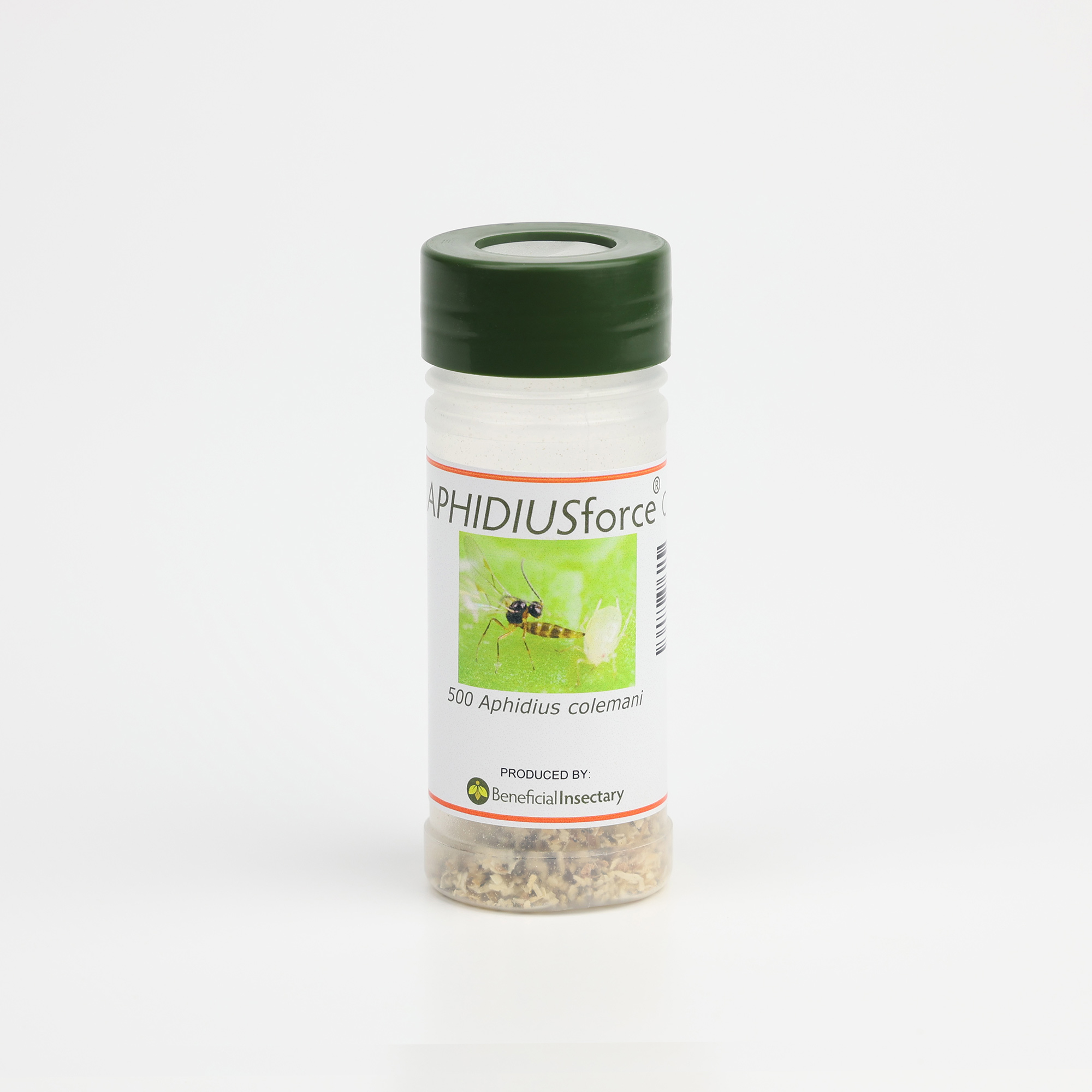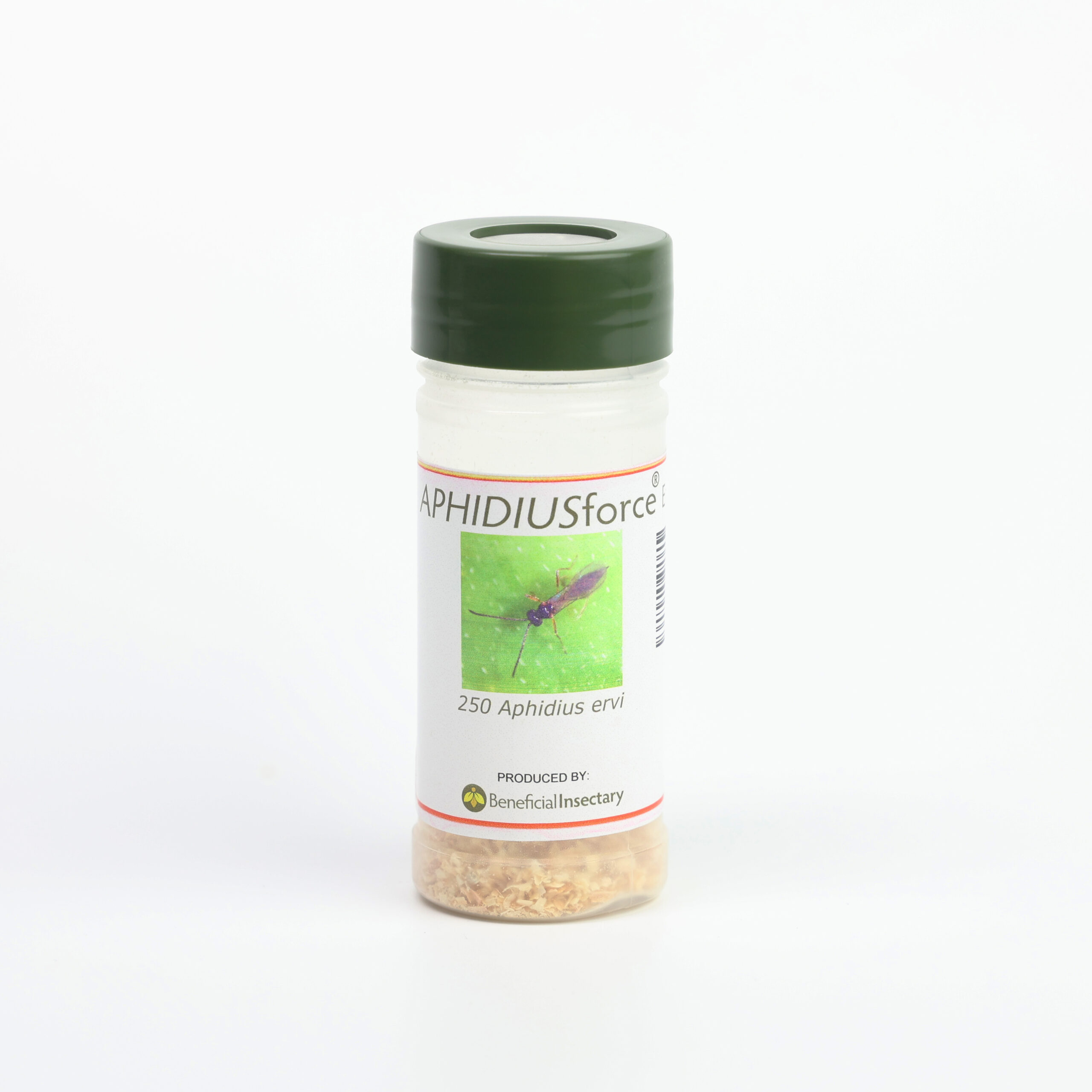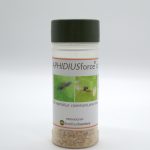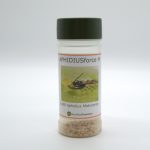APHID CONTROL
Aphids
Beneficial Insectary mass-rears biological pest control agents that explicitly address the natural management of Aphid species.
There are over 4,000 species of aphids globally, many of which are destructive crop pests.
Certain aphid species are cold tolerant. Some species use the cold as an ideal environment. In contrast, other species use this ability to be the first pests to appear in spring.
Aphids produce honeydew (the sugary excrement the aphids produce), which often attracts ants that farm and protect the aphids from gaining access to honeydew. If ants are present, they will need to be controlled before starting a biocontrol program.
Aphids are closely related to whitefly (a pest) and Orius insidious (the minute pirate bug, a predator), so some conventional applications will affect all three of these insects.
An adult aphid has two primary morphologies that can reproduce. The first is the non-winged form, which most consumers know because of its colonial, passive nature. The second is a winged form (or alate) that can move quickly throughout a crop.
Aphids only sprout wings in their final life stage if a hormone is triggered from their population getting too dense or the plant health degrades past the point of quality feeding.
Most aphids in greenhouses and other systems don’t lay eggs in the crops.
Cannabis aphids will lay eggs, but we are unsure what environmental trigger causes this egg-laying behavior. The light cycle that growers use to trigger their plants to flower is thought to trigger the aphids into laying eggs.
Some of the aphids that are only observed to give live birth in greenhouses will lay eggs in natural environments. Green peach aphids lay eggs on Prunus in the fall but have never been observed to do so in greenhouses.
Aphids love tender new growth – they will usually stay on the latest growth and follow it upward as the plant develops – all the way through the budding and flowering stages.
Aphids often have multiple generations established within an infestation, perpetuating themselves so far that it makes predator and conventional applications habitual throughout the ideal environment of aphid species.
Crops need constant monitoring for new species that could not be affected by current control methods that are in place.
Aphids often inject a toxin ion into plants that help them feed, but manifest as contorted, stunted leaf tissue.
Beneficial Insectary mass-rears biological control agents that explicitly address the natural management of aphid species.
Passive scouting on sticky cards should not be used as a baseline for an aphid population infestation presence. Aphid fliers (alates) are the form that will mostly be trapped this way, which is not a good indicator of aphid presence. Be sure to scout a crop for aphid populations actively.
Specific aphid beneficials’ will perform better depending on the crop dynamic and plant life stage.
Leaf damage can often be used as a baseline gauge for where aphid populations are present. It is ideal for tracking any hot spot infestations as applications are being made, assessing efficacy.
Proper pest species identification is critical to finding the right biological control agent for a situation.
Aphids can cause a reactionary response when they are found. Still, it is essential to fully assess the population dynamic between pests and Beneficial’s before going with a more conventional approach.
Some aphid biological control agents will be faster acting than others. Some biological control agents will be affected by conventional applications differently.
Our IPM Specialists can help you identify a species of beneficials’ that could potentially be effective and appropriate in your environment for your aphid pest(s). Additionally, figuring out what conventional applications might be doing to your beneficials’.
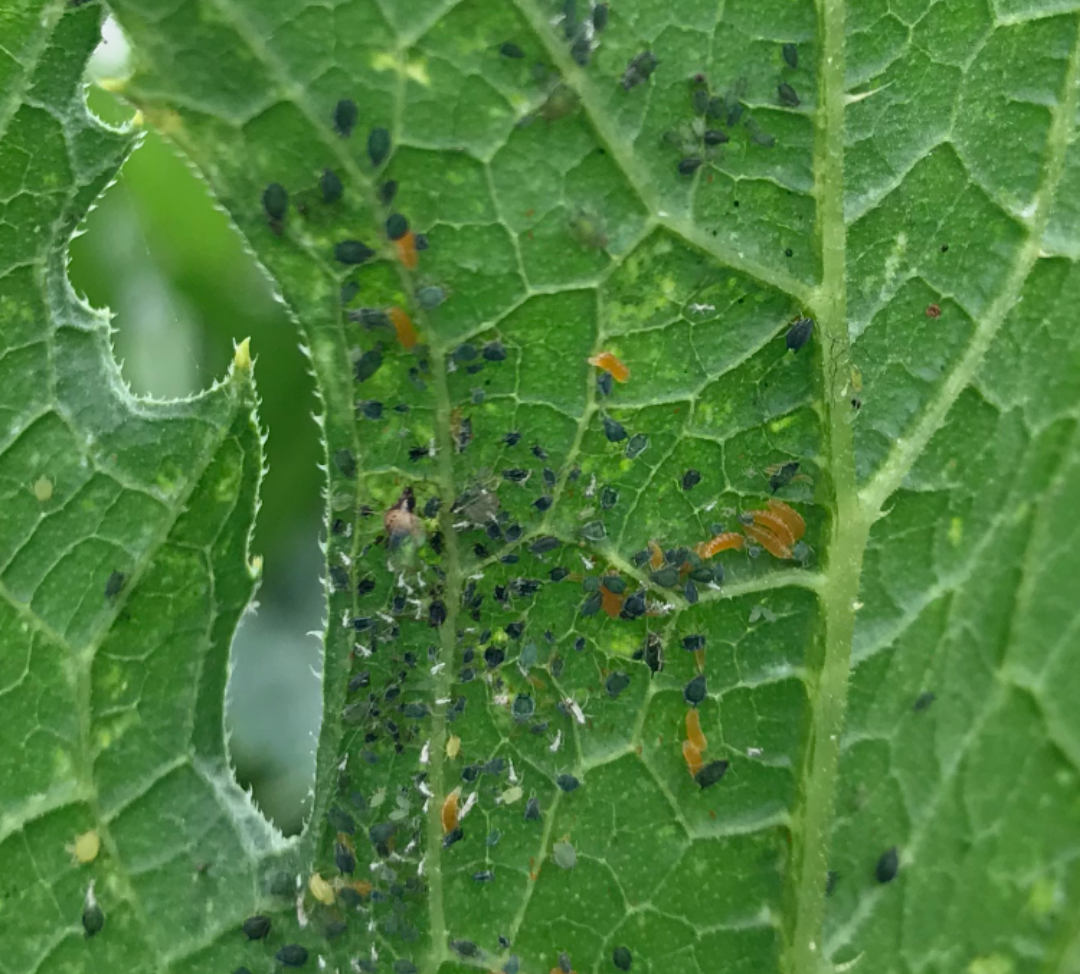
NATURAL SOLUTIONS
Products We Offer
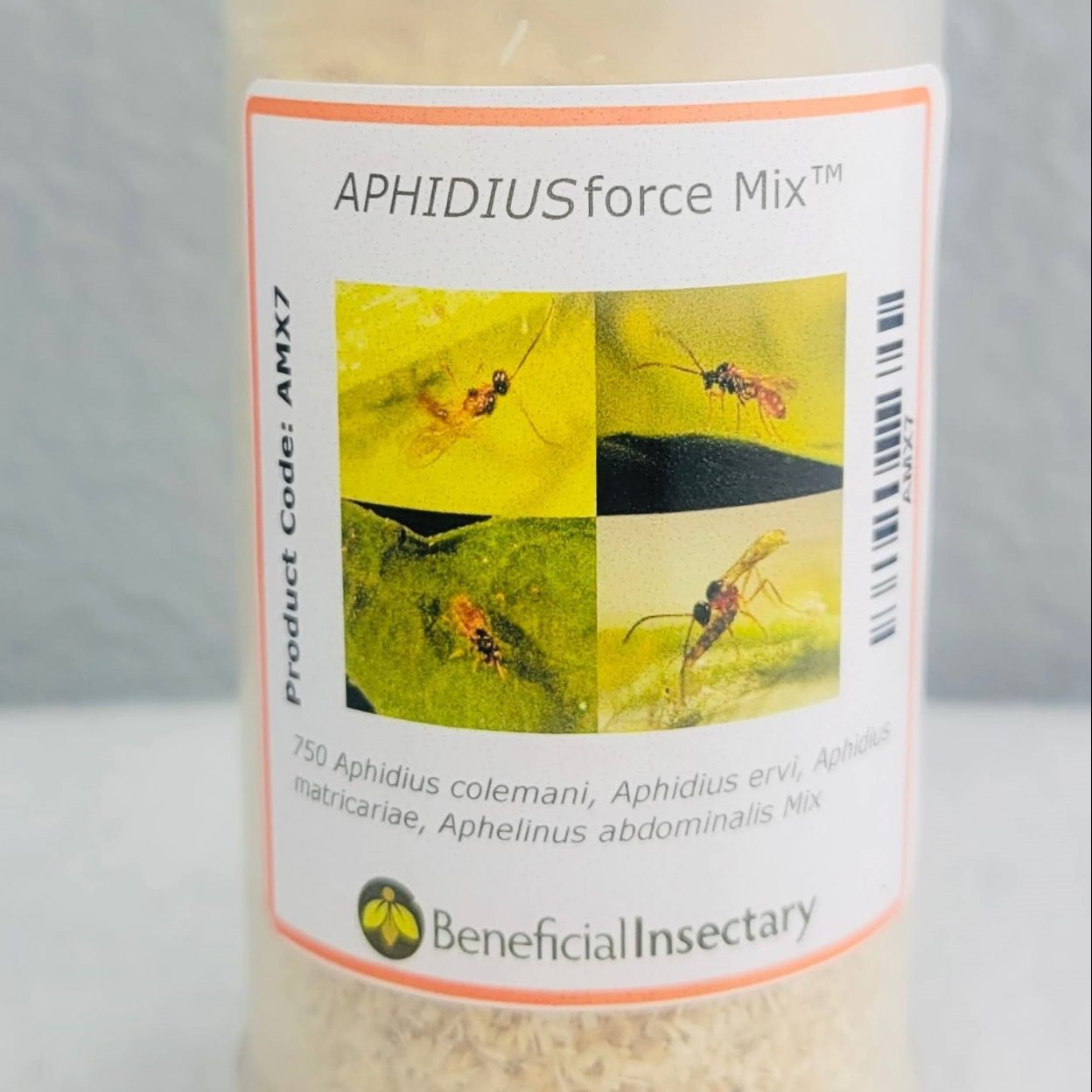
APHIDIUSforce™ Mix
APHIDIUSforce™ mix is a mix of four parasitoid wasp species that will attack many common pest aphids.
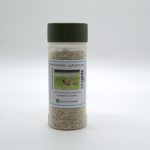
APHIDOLETESForce™
These aphid predatory midges are great in trees and greenhouse tomatoes and other crops. These midges have other uses as well.
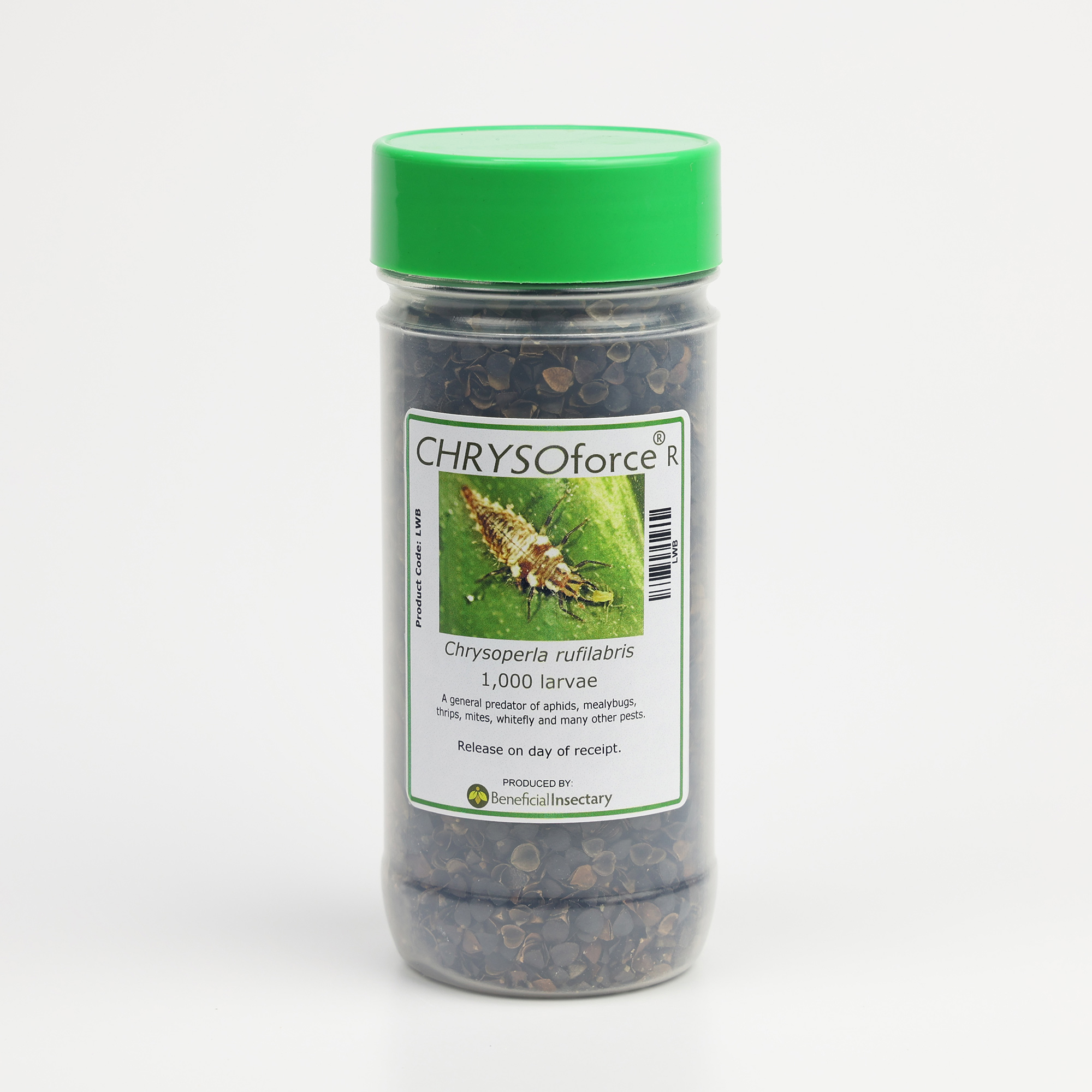
CHRYSOForce™ R
Green lacewings (Chrysoperla rufilabris) are aggressive predators of aphids and other soft-bodied pests. Larvae are ideal for faster control.

